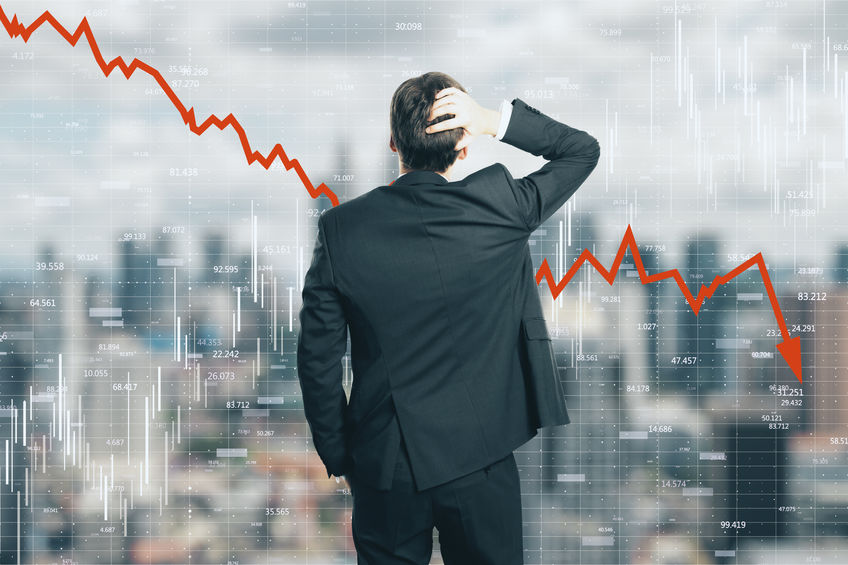Beyond the anxiety that naturally comes with a pandemic, most people have been saddled with added and unplanned financial stress because of loss of a job, reduction in income or the panic and shock that comes with watching your once-healthy 401(k) go down and up like a frenzied yo-yo.
So, how should you handle the financial gut-punch that has come with the COVID-19 crisis?
“Obviously for those with income under $75,000 or joint income under $150,000, getting a stimulus check within the next few weeks will make an impact, especially those who have been furloughed or laid off,” says Jim Stark, CFP, CIMA, president and managing partner of JRS Wealth Management Group. “The enhancements to unemployment are huge, especially when you consider the fact that last week’s unemployment claims hit a record high and are expected to grow even more. Cutting the waiting period and adding $600 per week will put a lot of unemployed or furloughed people in a decent position to get through the next few months.”
But how about those people who are in panic mode after watching their 401(k) go into roller-coaster mode during the coronavirus crisis? Here’s what five of Arizona’s leading financial management experts say you need to remember:



Sherry Hall, CFP, CWS, AIF, president and financial adviser at Hallmark Financial: “It’s natural for all of us to feel panic during times of crisis, but to move out of your long term positions at the bottom would be the worst thing you could do for your future retirement. To bring some comfort, look at charts showing the most recent market drop in 2008-09 to then see the recovery, just as the markets also healed after big drops in 1987 and 2001. Now is really the time to INCREASE your contributions, to be able to ‘buy low’ while the market is ‘on sale.’ This too shall pass, and the resilience of the U.S. economy will show its true stripes in a few months, I have complete confidence in that.”
Dustin Mac Brown, CFP, AAMS, financial planner, DM Brown Financial Services: “I remind our clients that the capital markets are just a very complex tool for exchanging assets for paper, much like your local grocery market did, and will again, trade paper for assets. Some of us understand that Assets with cash flow, growth, and potential are worth more than paper. Given the recent run on Toilet Paper I am reminded that not everyone does. Why would anyone trade their hard labor for more paper then they need regardless of the texture or whose face is one it? Trading that paper in for working capital that will work for you is a wiser choice if you have the tools to do so. If you do not know how to use these tools hire an educated, trained, licensed, and experienced professional to do it for you. I wouldn’t diagnose, prescribe, or treat myself and you shouldn’t either.”



Suzie Eyrich, senior wealth planner at BMO Wealth Management: “Before panicking amid roller-coaster moments in the financial markets, focus on the goal. When you look at your entire financial picture, you should have a strategy to manage savings for different needs — everyday spending, medium-term purchases like college, home remodels or new business ventures, and your retirement savings. If you are not retiring in the next few years, the retirement bucket is in your long-term strategy, and it will weather multiple ups and downs. But keep in mind, it will recover. Focus on what you need today, which may require more cash reserves during this crisis, but stay the course and let the power of recoveries, compound growth and consistent savings get you to your goals.”
Brian Poe, CFP, wealth counselor at Versant Capital Management: “After experiencing more than a decade of economic expansion we have slipped into a bear market faster than ever before. This can be unnerving to even the most seasoned investors. In the long run, the coronavirus pandemic will be a short-term event, and the amount of economic stimulus that has been implemented will far outlast the virus. Our recommendation is to focus on the things you can control and not make an emotional financial decision from a position of panic.
“For the investors that are still in their accumulation phase, now is a great opportunity to purchase shares at prices we have not seen in a while. Equity investors have been rewarded over time for assuming short term volatility. Continue making regular contributions to your 401(k) during this period of volatility. If you can, consider increasing your contribution amount. In the future, we will probably look back at this period as a great opportunity to have purchased equities. “
Trevor Wilde, managing director and accredited investment fiduciary, Wilde Wealth Management Group: “It’s incredibly difficult during times of duress to do the right thing with investments but the adage holds true, Buffet put it best; ‘be greedy when others are fearful and be fearful when others are greedy.’ Fear is at an all-time high, people need to focus on reallocating their long-term money to take advantage of this. This is much easier said than done.”




